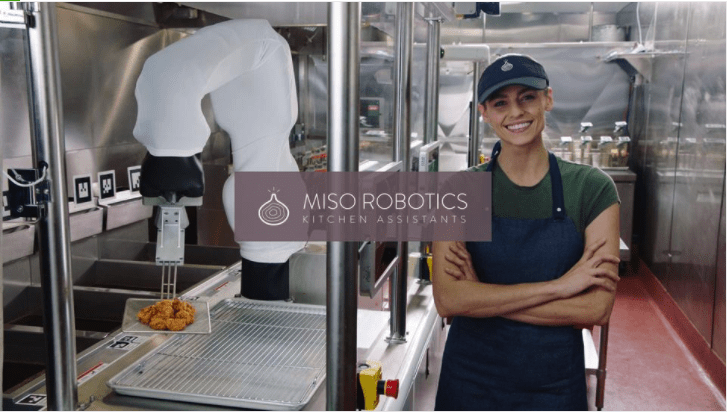Deal Abstract
https://www.seedinvest.com/miso.robotics/series.c
Robotics company selling burger-flipping, french-frying robotic arm with product in the market. Major investor in this company owns a restaurant chain that they are using to give a real customer use case. Recently signed three year contract with PathSpot, a company with Venture for America on the founding team.
In addition, a full-throated shout-out to the team at PathSpot for raising an enormous round!!! Truly an anti-fragile company.
Decision
Absolutely not, though this company is going to do great.
Why Investing/Passing
- Great example of a strong company that is already well on its way. It’s less of a good venture deal, more of a real company, e.g. valuation is too large for me to have any novel contribution about its likelihood of success.
- Small thing, but the fact that they didn’t have 2019 financials up was sloppy.
- Really couldn’t come up with a third reason for passing. I’m a fanboy, but discipline says I should stick to venture deals in the $5MM to $10MM valuation world in work that I have unfair expertise in.
The 6 Calacanis Characteristics (91 161 18)
| Check | Pass/Fail |
| 1. A startup that is based in SV | Fail: Pasadena, CA. |
| 2. Has at least 2 founders | Pass (4) |
| 3. Has product in the market | Pass |
| 4. 6 months of continuous user growth or 6 months of revenue. | Pass: (“Miso has doubled revenue (2018-2019)”, 2018 revenue was 54k.) |
| 5. Notable investors? | CaliGroup, vertically integrated investor and owner of restaurant group. Unfair advantage. |
| 6. Post-funding, will have 18 months of runway | Pass: Targeting $30MM, burn for 2018 was $6.6MM, so that’s 5 years. “Additionally, we have reduced operating losses to approximately $300-$350k per month (4.2MM/yr), and that is before revenue and any gross margin.” |
The 7 Thiel Questions (ETMPDDS)
- The Engineering question:
- For Sure: not sure who else are the brand names in this space, but so much as a robotic arm that restaurants are willing to use is 10x better than labor, absolutely.
- The Timing question:
- Good: global pandemic reduces human labor supply and also it’s the age of the machine.
- The monopoly question:
- Uncertain: Monopoly of restaurant robotic arms? Or robotic arms for high temperature high movement business needs? Honestly just focusing on rinse-lather-repeating robot arms for restaurants is a $1BN business, so somewhat irrelevant question, but defining what the big opportunity is interesting with this company.
- The people question:
- Excellent: Team seems smart and competent. MIT, CalTech, CMU, etc. are all known for having strong robotics programs.
- The distribution question:
- Excellent: Unfair advantage. As mentioned before, having one of your chief investors also own and nepotism sell your tech to their own restaurants is the type of efficiency capitalism loves and rewards.
- The durability question:
- Excellent: They’ve already pumped millions into investing, and with the distribution unfair advantage, this is a business with very, very high barriers to entry.
- *What is the hopeful secret?:
- The timing is right for cheap programming that can make the robot arm in CaliBurger scale to other restaurants very rapidly.
What has to go right for the startup to return money on investment:
- Overcome hurdles of being not just a robotic arm in Ft Myers, FL or Pasadena, CA, but a scalable repeatably deployable business solution in restaurants in locations.
- Solve for service! What happens when these arms break? Just like leasing enterprise printers, what is the service model and how does that affect P&L?
- Build trust with restaurant owners to invest large amounts of capital and business risk. The team said it themselves: this is a highly intimate aspect of one’s livelihood to trust a robot.
What the Risks Are
- Hardware is really hard. OTA updates, service (as previously mentioned,)
- Repeatability and speed of expansion. How long did it take for them to program that one arm, and how long can they get the programming and installation of an arm in an idealized final state?
- You’re selling to a large industry that has really thin margins. That’s already not a lot of space to start with—from there, where will this company get their upside from large profits?
Financials (References)
- Total Amount Raised: US $1,935,339
- Total Investors: 810
- Total Round Size: US $30,000,000
- Raise Description: Series C
- Minimum Investment: US $1,493 per investor
- Security Type: Preferred Equity
- Pre-Money valuation : US $80,000,000

